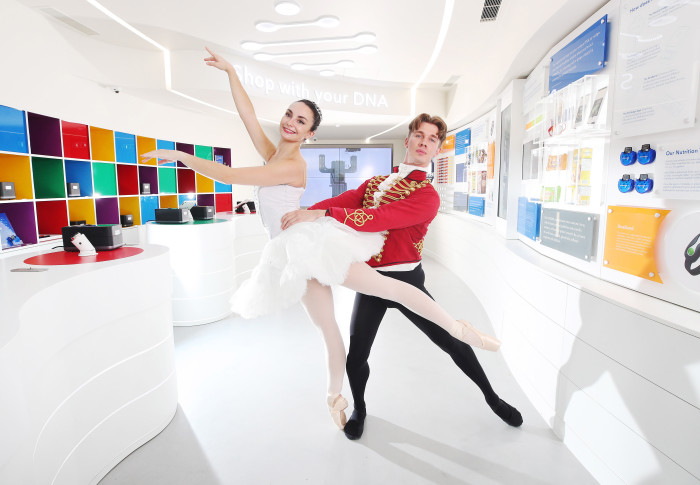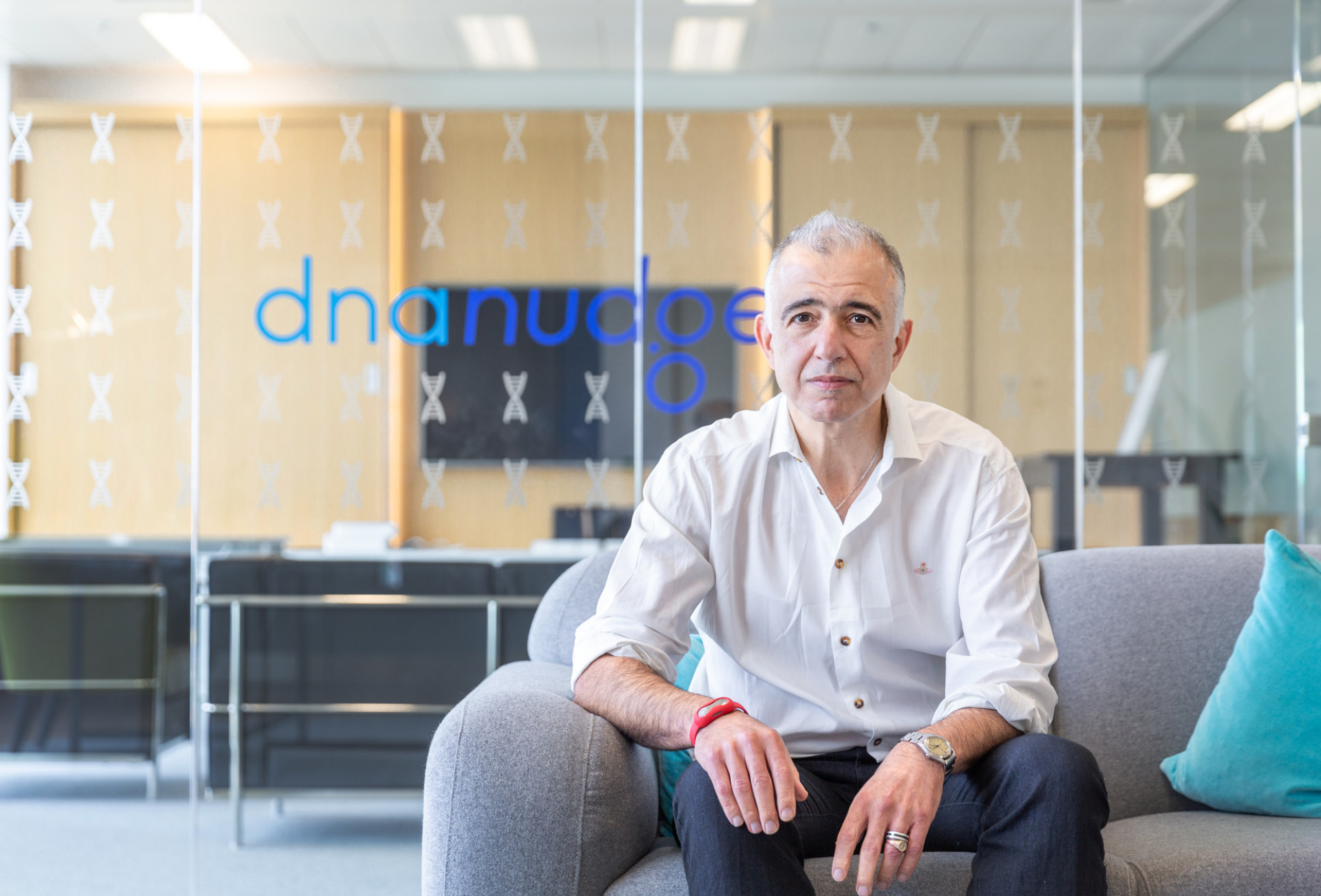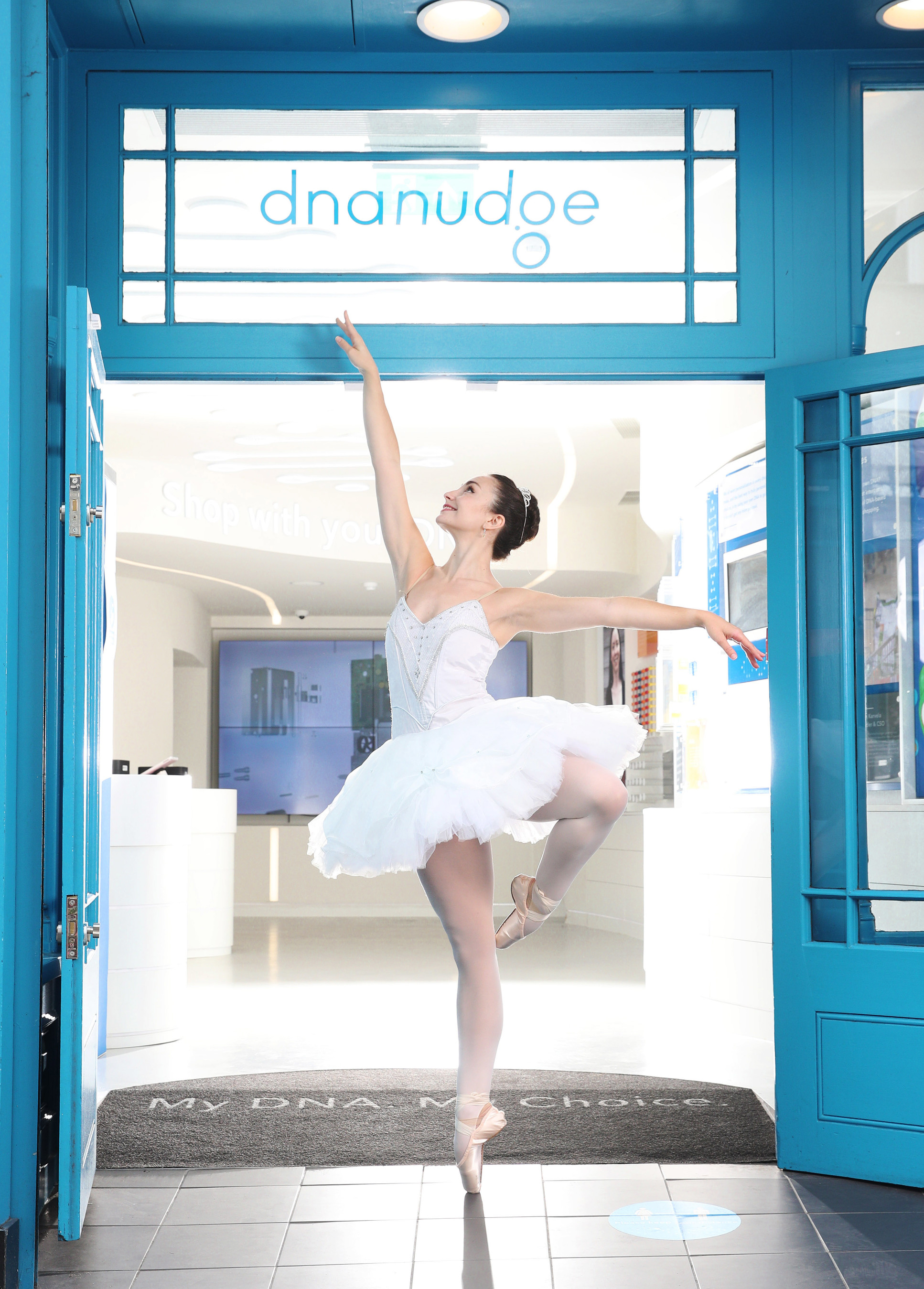Fast lab-free COVID-19 test platform DnaNudge wins prestigious Academy award

DnaNudge's tests are being used by institutions including The Royal Ballet to support the safe reopening of the UK’s arts and culture sector
Imperial startup DnaNudge has won the Royal Academy of Engineering MacRobert Award for its rapid, lab-free and reliable COVID-19 PCR test.
DnaNudge receives the award to honour its work adapting consumer genetics technology for use in NHS hospitals during the COVID-19 pandemic.
The determination and commitment of the entire DnaNudge team to get behind our health service and deliver a truly life-saving solution has been incredible. Professor Chris Toumazou
Based at the Imperial College London Translation and Innovation Hub at Imperial's White City Campus, the startup was created by Imperial biomedical engineer Regius Professor Chris Toumazou and geneticist Dr Maria Karvela. It initially pioneered a service that uses customers’ DNA and lifestyles to help inform their food choices.
DnaNudge’s COVID-19 tests accurately detect SARS-CoV-2 from saliva samples on-site in just over an hour, eliminating the need for a laboratory. In 2020 they were rolled out nationally in urgent care and elective surgery settings after the UK Government placed a £161 million order for 5.8 million test kits to be used in NHS hospitals.
Life-saving solution
Professor Toumazou FREng FRS, Co-Founder & CEO of DnaNudge, from Imperial’s Department of Electrical and Electronic Engineering, said: ”We’re absolutely delighted to be named the winner of the 2021 MacRobert Award, joining the ranks of some of the UK’s most innovative and world-changing engineers.
"The past year has been challenging for all, but the determination and commitment of the entire DnaNudge team to get behind our health service and deliver a truly life-saving solution has been incredible. We look forward to expanding the capabilities of our transformative genetic testing platform to address other major global health challenges, including in the area of oncology and STDs. This is just the beginning of our technology’s capabilities.”

Professor Alice Gast, President of Imperial College London, said: "Chris Toumazou is one of the world’s brightest and most innovative engineers. Chris and his colleagues’ work at DnaNudge during the pandemic has shown what can be achieved when agile, forward-thinking businesses turn their attention to global challenges.
"Their technology has played a critical role on the frontlines of the national effort against COVID-19, with the potential to improve health and wellbeing on a much wider scale. This is a fitting recognition of their vision, foresight, and determination.”
Experts from Imperial’s Faculty of Medicine and Imperial College Healthcare NHS Trust worked with the DnaNudge team to help take the technology into a clinical environment. Professor Graham Cooke, NIHR Research Professor at Imperial's Department of Infectious Disease, who led the clinical development said: “This is one of the most exciting technologies I’ve seen in this area, particularly because it avoids the need for any sample handling.”
Engineering at the forefront
Professor Sir Richard Friend FREng FRS, Chair of the Royal Academy of Engineering MacRobert Award judging panel, said: "DnaNudge is an excellent example of how the UK engineering community adapted to be at the forefront of the global efforts to tackle the COVID-19 pandemic. Its role in supporting the government with its testing capabilities will have gone a long way to helping to understand and contain the virus.
"Looking towards the future, this technology knows no limits, helping consumers to take control of their health and lifestyle and make informed dietary decisions, with positive long-term implications.
“The MacRobert Award has recognised many fundamental engineering advances, such as the CT scanner, which have truly changed the medical world. I am delighted that DnaNudge joins this group, and I look forward to seeing DnaNudge’s technology evolve in years to come, since widespread take-up of this technology will help to build a healthier nation, empowering people to take a proactive role in managing their lifestyle and future health.”
Supporting health and the arts
Since the UK Government’s order, the test is now also used in care homes nationwide and in supporting the return of the arts sector.

The latest arts institution to benefit from the test is the Royal Opera House – home of The Royal Ballet, where DnaNudge delivers regular testing on-site to performers and staff. The Royal Opera House joins the London Symphony Orchestra, Glyndebourne Festival and other leading arts and cultural organisations in using the tests to support the safe re-opening of the UK’s cultural sector.
An Imperial startup
DnaNudge began as an Imperial startup that created the first service in the world to use consumers’ own DNA, plus lifestyle factors, to ‘nudge’ people towards healthier and more personalised choices while shopping. The DnaNudge Nutrition service analyses and maps users’ genetic profiles against key health traits like obesity, diabetes, high blood pressure and cholesterol – using customers’ own DNA to guide them toward healthier eating.
DnaNudge’s Lab-in-Cartridge innovation allows consumers to provide cheek swabs in-store or posted from home. In just over an hour, DnaNudge’s NudgeBox portable analyser maps the user’s genetic profile to key nutrition-related health traits. Using the wrist-worn DnaBand – which also measures sitting time – or using the DnaNudge mobile app, people then scan food products in UK supermarkets to find foods that are a good match for their individual biology.
The MacRobert Award judges commented on the simplicity and usability of the DnaNudge technology and its potential to make a significant difference to the health and wellbeing of the nation moving forward.
-
Top and bottom image credits: The Royal Academy of Engineering
Middle image credit: Thomas Angus
Article text (excluding photos or graphics) © Imperial College London.
Photos and graphics subject to third party copyright used with permission or © Imperial College London.
Reporter
Caroline Brogan
Communications Division
